Barley and oats not only provide many vitamins, minerals, and fiber, but also bring many health benefits such as supporting digestion and weight control. However, many people still wonder if these two grains are the same in nutritional value. Let’s find out to answer this interesting question!
Barley and oats are two different grains grown all over the world. Let’s compare barley and oats to find out the similarities and differences in their nutritional value.
Are barley and oats the same?
Barley and oats are both very healthy grains, containing lots of protein, fiber, beta-glucan, and essential vitamins and minerals. Both types bring great benefits to cardiovascular health, help reduce blood cholesterol, create a feeling of fullness for a long time and effectively support the weight loss process.
However, the fact is that barley and oats are two completely different cereals, with different processing and applications.
- Barley has the same shape as regular rice, uniform grains and is often ground into fine flour to make cakes, noodles, or is mainly used in the fermentation process to produce beer.
- In contrast, oats are a cereal that is often flattened into flakes, can be processed into oatmeal, used to cook porridge, make cakes and are also widely used in life, especially in the field of beauty.
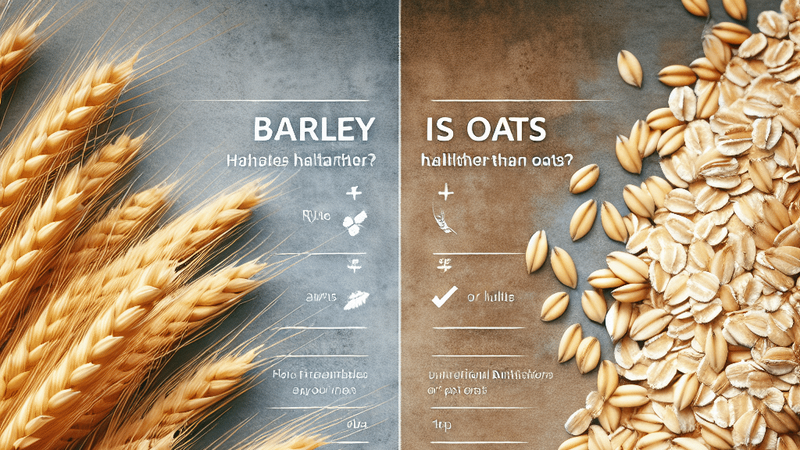
Many people mistakenly think that barley and oats are one and the same.
Comparing the nutritional value of barley and oats
Oats and barley are both nutritious whole grains, but they differ significantly in their nutritional composition. When comparing the nutritional value of oats and barley, it is clear that oats stand out in many nutritional components.
Oats contain 10.8g of total fat, much higher than barley’s 0.7g, indicating a better energy supply. In terms of protein, oats also dominate with 26.4g, while barley only has 3.5g, making oats a good choice for those who need to boost their nutrition.
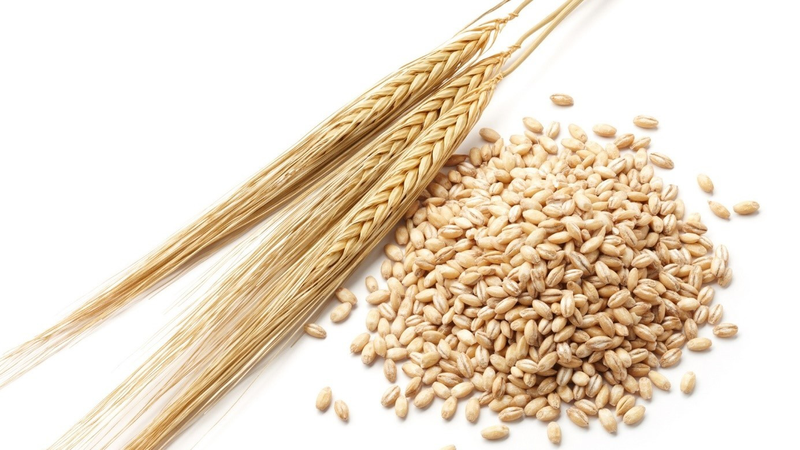
Oats have higher nutritional value than barley.
In other ingredients, oats have 16.5g of fiber, while barley has only 6g, the fiber in barley and oats helps improve digestion and support heart health. Furthermore, oats provide 103g of carbohydrates, compared to 44.3g in barley, which can provide more sustained energy.
In terms of minerals, oats have a higher calcium content (8%) than barley (2%), which increases the nutritional value of oats in supporting bone health. Finally, oats have fewer calories (193 calories) than barley (607 calories), allowing dieters to choose oats without worrying about too much excess energy.
Both oats and barley have their own nutritional benefits. However, oats are not only richer in protein and fiber, but also have a more balanced nutritional profile than barley, making them a nutritionally outstanding choice for a daily diet.
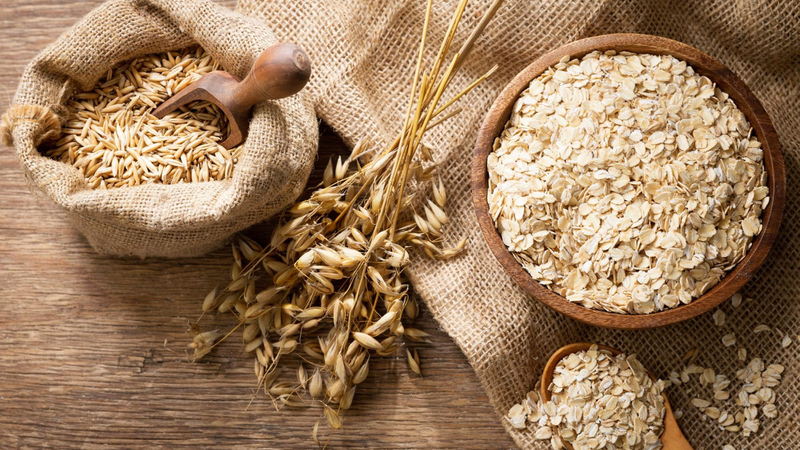
Barley and oats are both high-fiber grains.
What are the health benefits of barley and oats?
Barley and oats play an important role in the human diet because they are rich in phytonutrients. Both oats and barley are rich sources of protein, vitamins, minerals and other nutrients.
Good for the heart
Soluble fiber in oats has the ability to slow down the absorption of fat and cholesterol, contributing to reducing blood cholesterol levels. Using oats daily and properly can help prevent heart attacks, prevent strokes and reduce the risk of cardiovascular disease.
Reduce blood sugar
Oats are rich in fiber, which helps reduce the process of food metabolism in the body. Therefore, eating oats regularly can reduce insulin, lower blood sugar and control blood sugar levels, thereby reducing the risk of type 2 diabetes.
In addition, oats and barley contain a lot of magnesium, a mineral that helps enzymes control blood sugar levels, keeping blood sugar stable. This not only helps control the risk of diabetes but also reduces arthritis and bone related problems.
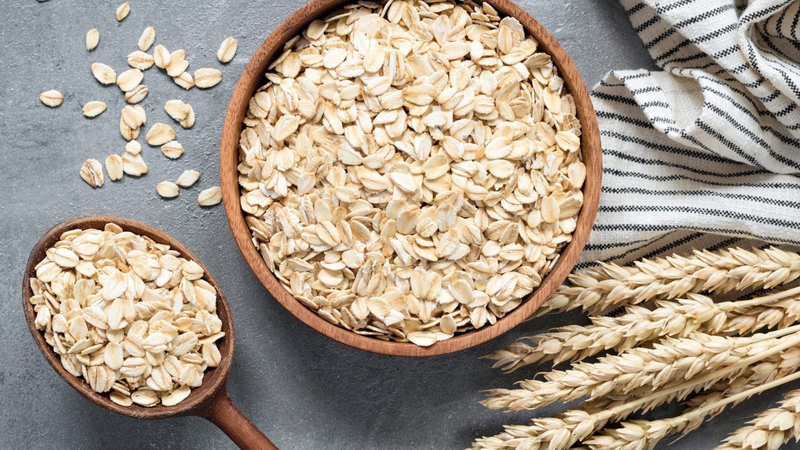
Barley and oats help control blood sugar effectively
Support the digestive system, prevent constipation
One of the outstanding benefits of barley and oats is the rich fiber content, which is especially important for the elderly when the digestive system begins to decline. Regular use of these cereals will help maintain normal digestive function, while reducing the risk of colon-related diseases.
Prevent cancer
The antioxidants in barley and oats help protect cells from free radicals, thereby preventing the risk of cancer. A recent study from scientists shows that the fiber in oats and barley brings significant benefits, reducing the risk of colon cancer by up to 20%.
Helps lose weight
Oats contain a large amount of soluble fiber, which has the ability to form a gel in the small intestine. This substance helps reduce hunger and increase the feeling of fullness, thereby curbing appetite and effectively supporting weight loss. When you eat, you will feel full longer after each meal because fiber takes a long time to digest. It provides enough energy for activities without making the body tired, that’s why oats are popular in weight loss and weight control diets.
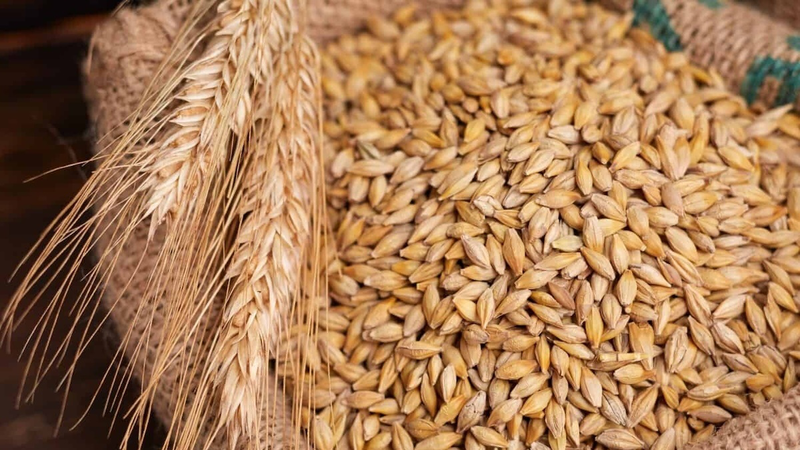
Eating oatmeal helps lose weight
Barley and oats both have significant nutritional value, but there are also important differences. While oats are superior in protein and unsaturated fat content, barley stands out for its richness in micronutrients. Depending on your personal nutrition goals and preferences, both grains can contribute positively to your overall health. Adding them to your diet in a variety of ways can provide a variety of nutritional benefits and improve your health.





